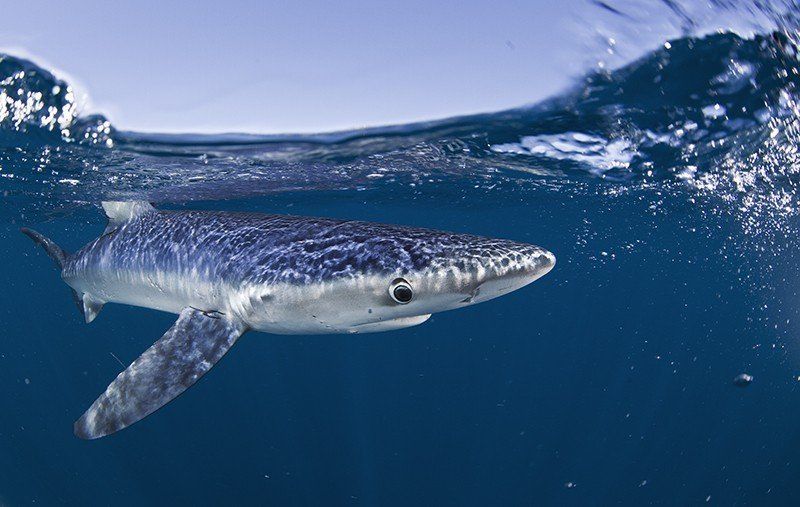Nowhere to Hide!
Our oceans are becoming increasingly crowded and sharks in the open ocean are being forced to share their habitat with fisheries. Global satellite tracking of the oceans has shown that there is a big spatial overlap between pelagic sharks and commercial fishing vessels. Large numbers of sharks are being caught as by-catch and they are now one of the most threatened marine species.
The effective conservation and ocean management of a highly migratory species, such as sharks, depends on having a clear idea of their movements. More data is required at a global scale so that shark ‘hotspots’ can be identified, and marine protected areas can be chosen and implemented with the greatest effect.
Oceans cover 70% of the world and provide us with valuable ecosystem services. Over recent decades, disturbances from human activities such as climate change, plastic pollution and overexploitation have had a massive negative impact on marine life thoughout the oceans. Sharks are top predators in the oceans, but they are not exempt from these issues. More recently, the problem of pelagic sharks having no refuge from fishing has come to light (Queiroz et al., 2019).
Pelagic sharks live in open waters and migrate long distances each year. They normally stay further away from shore and spend their time in waters that are out of national jurisdiction. Sadly, this does not mean that pelagic sharks manage to avoid lines and nets used in the fishing industry. A boom in industrial fishing during the second half of the 20th century meant that more sharks were being caught as by-catch. Pelagic longlines are responsible for catching the majority of sharks worldwide. This method uses lines that can reach 100 kilometres and can include hundreds of hooks. A recent study by Warren (2019) showed that pelagic sharks face almost one-quarter (24%) of their roaming area being encroached upon by longline fishing operations, but this can also be higher in many regions (38% in the Indian Ocean).
Assessments of recent data have concluded that shark populations have decreased drastically. Sharks, but also their relatives skates and rays, are now one of the most threatened marine species, with one-third of them being at risk of extinction. White sharks ( Carcharodon carcharias ) and porbeagles ( Lamna nasus ) had some of the greatest overlap between the areas they prefer and those targeted by the longline fishing fleets. Spatial overlap between sharks and the locations of fishing vessels was also high for commercially valuable shortfin mako ( Isurus oxyrinchus ) and blue sharks ( Prionace glauca ).
Understanding where sharks spend the majority of their time, feeding, breeding, and resting is important. Hotspots have often been located in frontal zones – boundaries in the sea between different water masses that can have the correct combination of temperature and nutrients for phytoplankton to bloom, which attracts zooplankton, as well as the fish and squid that sharks eat. However, for the same reason, fisheries can be attracted to the same places. Baum (2019) was able to conclude from his data that much of the world’s fishing activity in the open oceans is conducted on shark hotspots. This means that many sharks, which are already endangered, face a future without refuge from industrial fishing in the places they gather.
Management action and conservation is overdue for the protection of pelagic sharks, but many scientists are working to collect more satellite data to help implement the correct marine protected areas. Tracking where these species roam and where fisheries interact with them most will help patrol vessels monitor these high-risk zones more efficiently. Action is required to protect sharks and the habits that they rely on, otherwise some of the shark hotspots may not exist in the near future
References:
Baum, J., 2019. Industrial Fishing Boats Leave Few Safe Havens for Sharks on the High Seas. Nature 572, 449-450.
Queiroz, N. et al. 2019. Global spatial risk assessment of sharks under the footprint of fisheries. Nature 572, 461–466.
Warren, M., 2019. Sharks squeezed out by longline fishing vessels. Nature 1476-4687 (online).
SHARE THIS ARTICLE















